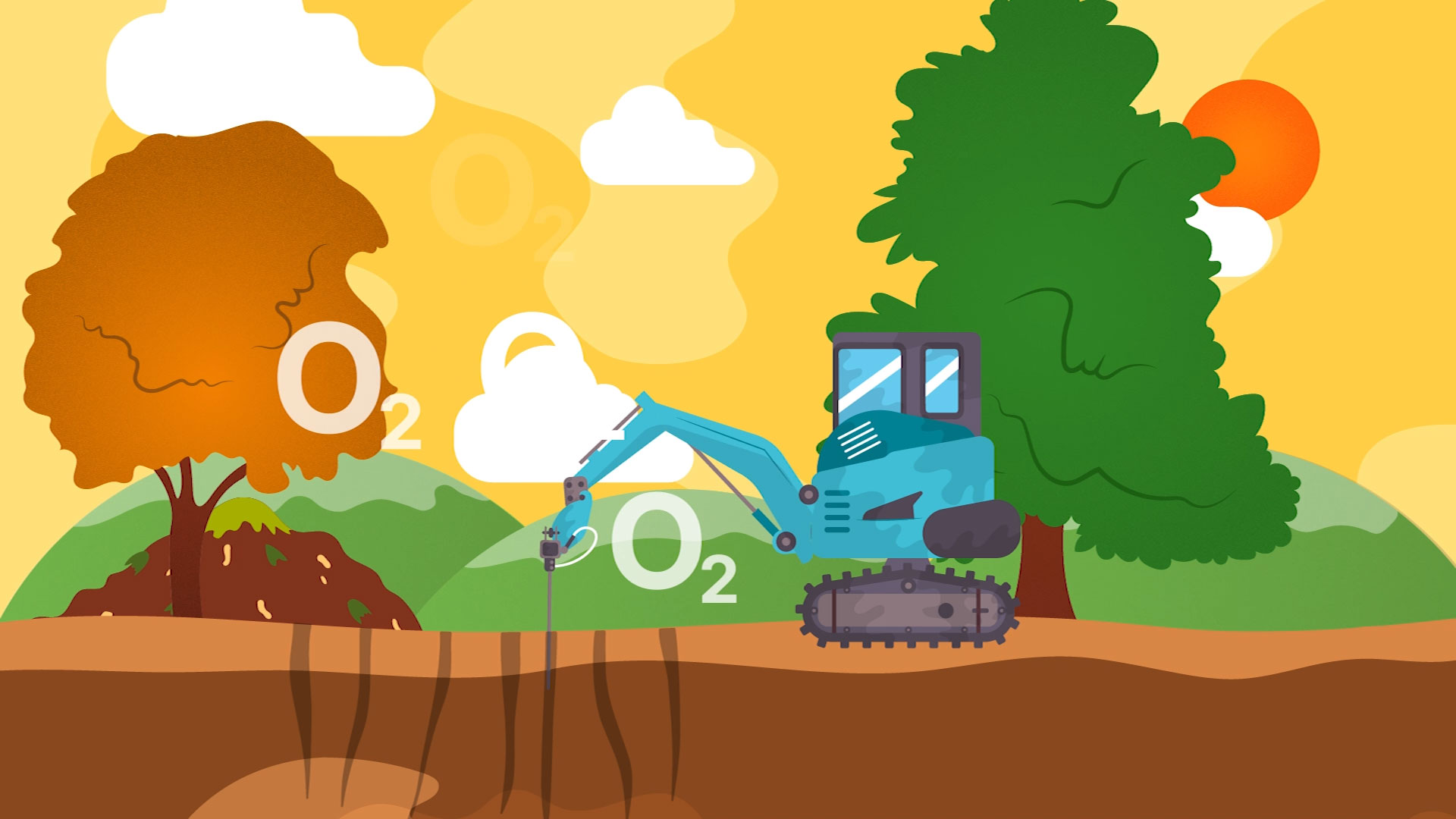Project develops mechanical soil loosening method

For one year GIQS e.V. together with the Dutch contractor De Mulder-Strijbosch had been looking for a solution for large-scale soil compaction in the framework project “Unser Boden/Onze Bodem” of the INTERREG V A programme. At the end of the cross-border cooperation, machine soil loosening is now much more efficient than manual methods.
More and more soils are being compacted – whether by heavy vehicles driving over them or larger crowds of people walking over them and exerting pressure. The consequences of this are less soil life, less nutrient uptake by plants, stunted growth and greater susceptibility of plants and trees to disease and pest infestation.
Together with the company De Mulder & Strijbosch and in cooperation with the associated partner SoilMania, GIQS e.V. has been involved in developing a mechanical soil loosening system in which compressed air is blown into the soil to loosen compacted soil layers again. The resulting cracks in the soil allow for better gas exchange between the soil and the atmosphere. A compost mixture, which is then used to fill the resulting holes in the soil, also ensures better soil life.
The project activities carried out built on the results of the INTEREG V A project TreeMania, which is still ongoing. The innovative mechanical process developed in “Our Soil” is more effective and efficient than the previously used manual soil cultivation with a compressed air lance, so that soil improvement can be carried out on a much larger area in the same time: “The moment you use a machine that just keeps running, you can do much more. And then you can make it cheaper and more attractive and make sure you can treat more trees,” says tree expert Willy Détiger from cooperation partner SoilMania.
Unser Boden was co-financed by the INTERREG V A programme Deutschland-Nederland with funds from the European Regional Development Fund (ERDF). It was accompanied by the programme management at Euregio Rhein-Waal.


